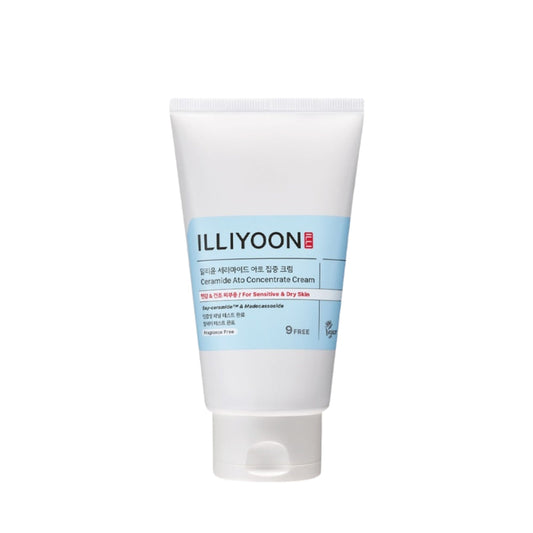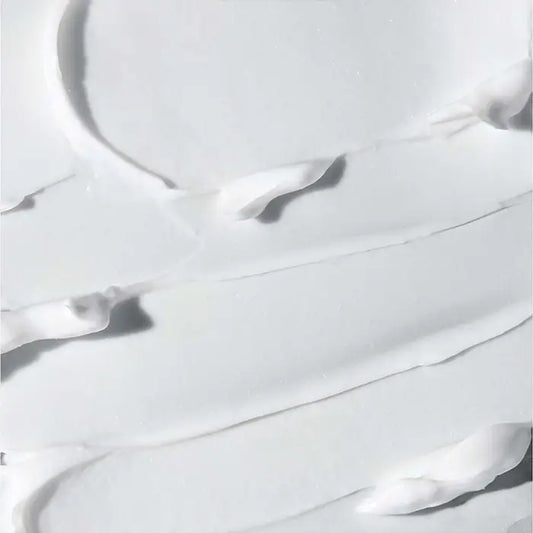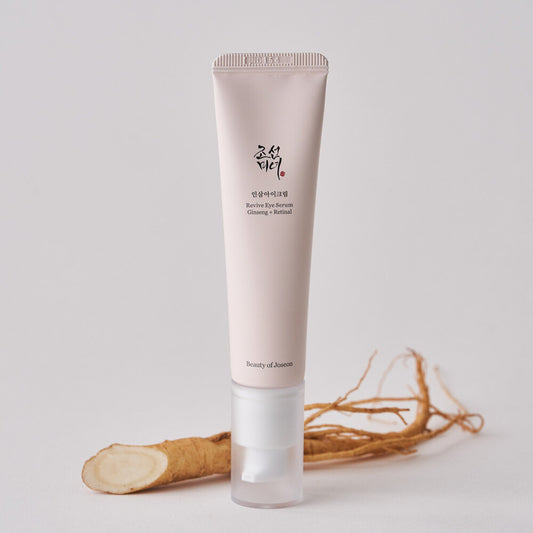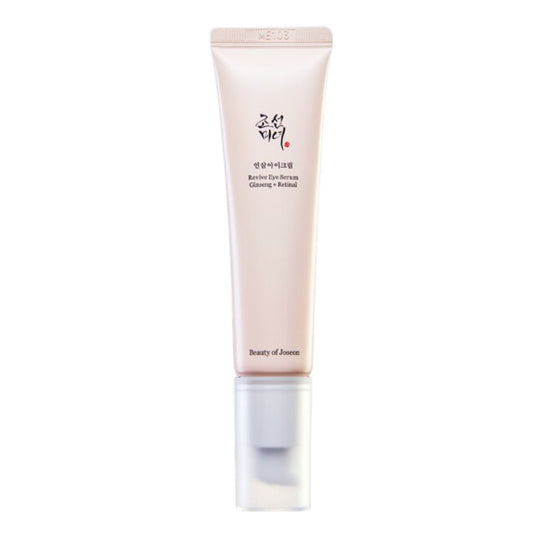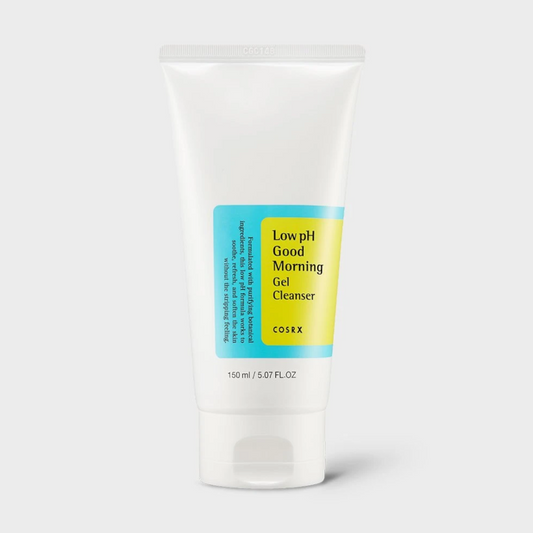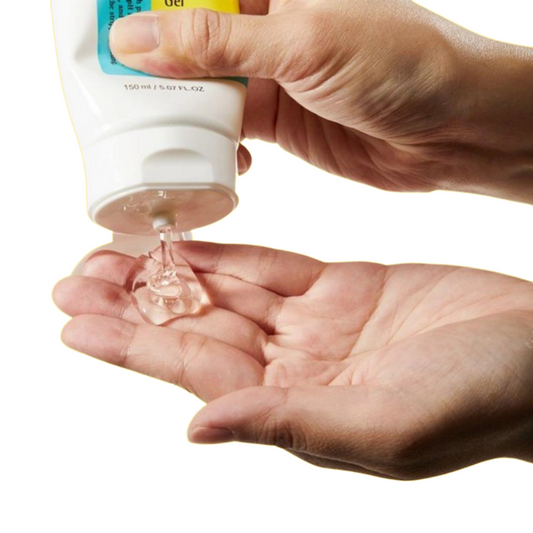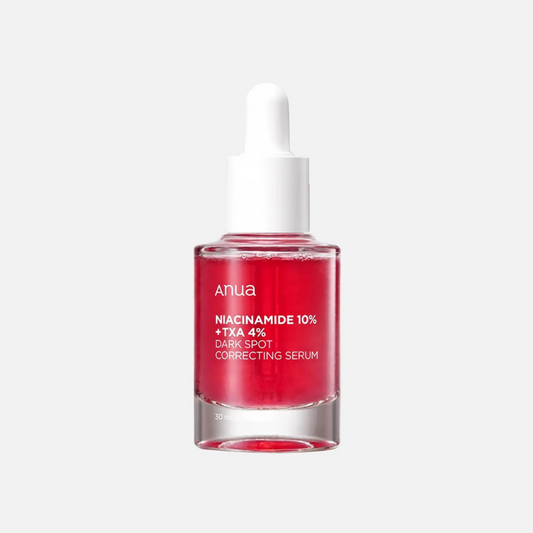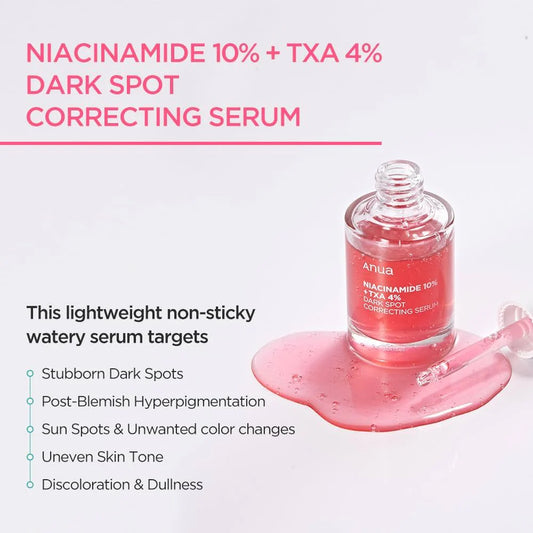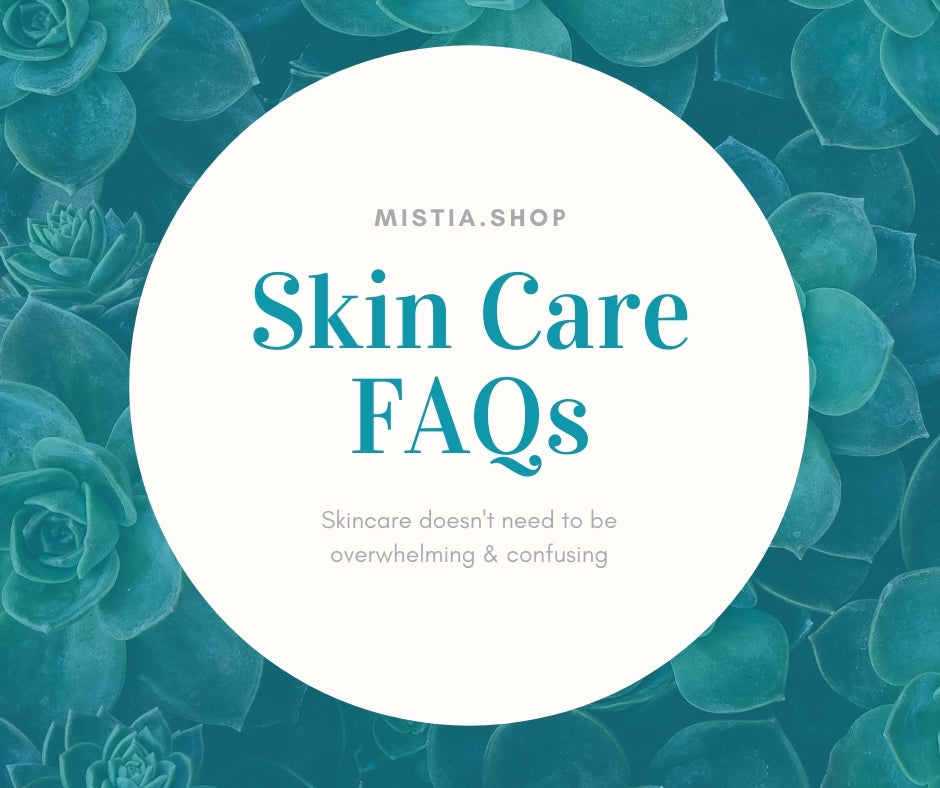
Skin Care FAQs
Share
Skin care can be overwhelming with so much information online about do's and don’ts. Many of the beauty and skincare articles with commercial intent encourage over-using skincare products or over-doing certain skincare routines to sell more (A good example would be daily exfoliation). This makes everything even more confusing. However, don’t give up yet. Here we have put together 8 most basic and frequently asked skincare questions and answers.

1. What Temperature Water Should I Wash My Face With?
The best water temperature for face washing is warm. Warm water helps loosen the dirt, but preserves your skin’s natural hydrating oils. According to Dr. Rivera, most skin care products are tested or created to work best with warm temperature. Lukewarm water can help ensure that your facial cleanser gets the right amount of foaming action, removes enough dirt from the surface of your skin, and balances your natural skin oils appropriately.
While it’s convenient to wash your face in shower, the water temperature for a typical shower is usually hotter than the ideal temperature for your face and hot water strips the healthy natural oils from your skin.
You must have heard that rinsing your face with icy water after steam your pores open cleanses and tightens your skin. According to howstuffworks.com, this doesn’t have any scientific backing and in fact, too-hot or too-cold temperatures may make your skin dry or irritated.

2. How Long Should I Wash My Face?
You shouldn't wash your face for more than 30 seconds to a minute. If you rinse your skin squeaky clean for minutes on end, stop this bad habit. Over-washing, over scrubbing, and over exfoliating can lead to irritation and breakouts. A quick gentle wash is all that is necessary at baseline.

3. How Often Should I Wash My Face?
Wash your face at least once a day, but no more than twice. While frequent face washing is good hygienic practice, over-cleansing can be a problem. If you have dry skin, washing your face more than once a day will just dry it out even more. Have a quick wash with warm water only in the morning if possible. There is an exception. You need to wash your face after exercising to get rid of any sweat, dirt and oils that might clog your pores.

4. How Often Should I Exfoliate?
You should never exfoliate your skin daily. Normal to dry skin types should exfoliate two to three times per week. If you have dry or sensitive skin, keep it to once a week.
Exfoliation is the process of removing dead skin cells from the outer layer of your skin. It can be beneficial for removing dry or dull skin, increasing blood circulation, and brightening and improving your skin’s appearance. If not done properly, it could do more harm than good by causing skin irritation, dryness, and inflammation.

5. How Often Should I Use Sheet Masks?
Twice or three times per week is recommended. A mask per day works only when you have very dry skin and you use a hydration mask. According to the interview with Elizabeth Tanzi, founder and director of Capital Laser & Skin Care and associate clinical professor for the department of dermatology at the George Washington University Medical Center in Washington, D.C., by Allure, using sheet masks formulated with exfoliating acids, like glycolic, are too strong for daily use and can cause irritation. The daily use of sheet masks is definitely no no to those who are acne-prone.

6. How Often Should I Apply Sunscreen?
Every 2 hours is a good benchmark. Apply sunscreen to dry skin 15 minutes before going outdoors even if it is cloudy, rainy, or cold outside. The American Academy of Dermatology Association recommends everyone use sunscreen that offers both UVA and UVB protection, has an SPF of 30 or higher and is water-resistant.
Sunlight consists of two types of harmful rays that reach the earth - UVA rays and UVB rays. UVA rays, often called ‘aging rays’, can prematurely age your skin, causing wrinkles and age spots, and can pass through window glass. UVB rays, often called ‘burning rays’, are the primary cause of sunburn and are blocked by window glass. Remember, the sun's UVA rays come through car windows and glass, so you still need to apply sunscreen even if you're only going to be driving.

7. Does a High SFP Sunscreen Protect Better?
SPF (sun protection factor) indicates protection against the ultraviolet B (UVB) rays that cause sunburn. In theory, higher-number SPFs block slightly more of the sun's UVB rays.
However, many studies have found that people are misled by the claim of the sun's UVB rays on high-SPF sunscreen bottles and more likely to use high-SPF products improperly. They tend to stay out in the sun much longer or may skip reapplying. As a result, they may expose themselves to more harmful ultraviolet radiation than do people who rely on products with lower SPF values.
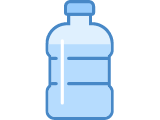
8. How Much Water Should I Drink?
The 8x8 rule (eight 8-ounce glasses of water per day, about 2 liters) is commonly known, but it isn’t based on solid, well-researched information. There is no fixed number on this since everyone’s physical condition is different and there are many factors including your gender, age, and activity level that can affect your hydration level.
However, The Institute of Medicine recommends 13 cups for men age 19 and older and 9 cups for women.
Here is a detailed breakdown of gender and age group (Source: The Institute of Medicine).
|
Demographic |
Daily recommended amount of water (from drinks) |
|
children 4–8 years old |
5 cups, or 40 total ounces |
|
children 9–13 years old |
7–8 cups, or 56–64 total ounces |
|
children 14–18 years old |
8–11 cups, or 64–88 total ounces |
|
men, 19 years and older |
13 cups, or 104 total ounces |
|
women, 19 years and older |
9 cups, or 72 total ounces |
|
pregnant women |
10 cups, or 80 total ounces |
|
breastfeeding women |
13 cups, or 104 total ounces |
The challenge most of us are facing is drinking more water. However, you can get over-hydrated by drinking too much. Overhydration is more common among endurance athletes who drink large amounts of water without correctly accounting for electrolyte losses. Listen to your body and do not force yourself to drink more than your body feels right.

9. What Level of Humidity Is Ideal for My Skin?
As we enter the winter season, indoor heating can drop the humidity level in the home and make the skin dry. 30-50 percent humidity in the home is ideal to prevent dry skin, according to mayloclinic.org. Low humidity can wreak havoc on our skin because it takes away the moisture, thus making it dry, scaly, or cracked. The high humidity can make your home feel stuffy and can trigger the growth of harmful bacteria, dust mites and molds. You can use a humidifier to increase the amount of moisture in the air and also apply enough moisturizer to your skin frequently.
Sources:
- https://www.lorealparisusa.com/beauty-magazine/skin-care/skin-care-essentials/cold-vs-hot-water-the-secret-for-your-best-skin.aspx
- https://health.howstuffworks.com/skin-care/cleansing/basics/quick-tips-should-you-wash-your-face-with-warm-or-cold-water-.htm
- https://www.insider.com/how-long-you-should-wash-your-face-2019-6
- https://www.healthline.com/health/how-to-exfoliate
- https://www.allure.com/story/sheet-mask-every-day
- https://www.aad.org/public/everyday-care/sun-protection/sunscreen-patients/sunscreen-faqs
- https://www.healthline.com/health/how-much-water-should-I-drink
- https://www.nap.edu/read/10925/chapter/6
- https://www.medicalnewstoday.com/articles/318619
- https://www.mayoclinic.org/diseases-conditions/common-cold/in-depth/humidifiers/art-20048021

